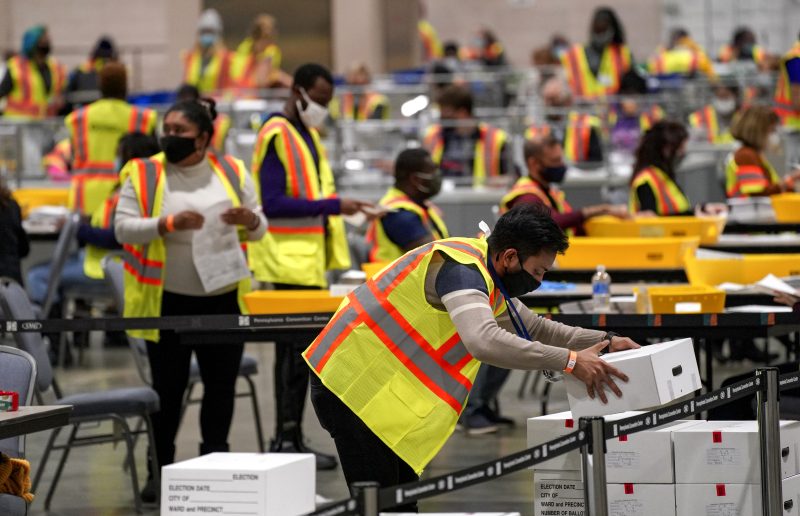In the midst of a highly contentious election season, the issue of mail-in voting has taken center stage as a battleground for political parties seeking to secure victory. The latest twist in this saga comes as the Trump administration and Republican allies are pushing swing state courts to reject mail-in ballots, raising concerns about the integrity of the electoral process.
The Trump campaign’s legal challenges in swing states like Pennsylvania, Michigan, and Wisconsin have focused on delaying the counting and certification of mail-in ballots, arguing that the process lacks transparency and is susceptible to fraud. In Pennsylvania, for example, Republicans have asked the U.S. Supreme Court to intervene and block the state’s extension of the deadline for receiving mail-in ballots.
Critics of the Trump administration’s efforts to undermine mail-in voting argue that these tactics are a blatant attempt to suppress voter turnout and sow doubt in the legitimacy of the election results. By focusing on swing states where the race is expected to be close, Republicans are strategically targeting areas that could make a significant difference in the outcome of the election.
The push to reject mail-in ballots also highlights the larger issue of voter suppression in the United States, particularly among communities of color and low-income voters who may face barriers to accessing traditional polling places. By challenging the validity of mail-in ballots, the Trump administration risks disenfranchising millions of Americans who rely on this method of voting, especially in the midst of a global pandemic that has upended traditional voting practices.
Despite these challenges, advocates for mail-in voting remain steadfast in their commitment to ensuring that every eligible voter has the opportunity to have their voice heard in the democratic process. The expansion of mail-in voting has been hailed as a crucial way to guarantee that individuals can participate in elections safely and securely, particularly in light of the ongoing public health crisis.
As the legal battles over mail-in balloting continue to unfold, the outcome of these court decisions will have far-reaching implications for the future of elections in the United States. The ability to vote by mail has become a hot-button issue in the current political climate, with both major parties vying for control over the narrative and seeking to gain any advantage they can in the quest for electoral victory.
In the final stretch of the 2020 election, the debate over mail-in voting is far from resolved. As swing state courts grapple with the legality and validity of these ballots, the very foundation of the democratic process hangs in the balance. The outcome of these legal battles will not only shape the outcome of this election but will also have a lasting impact on the future of voting rights and election integrity in the United States.
